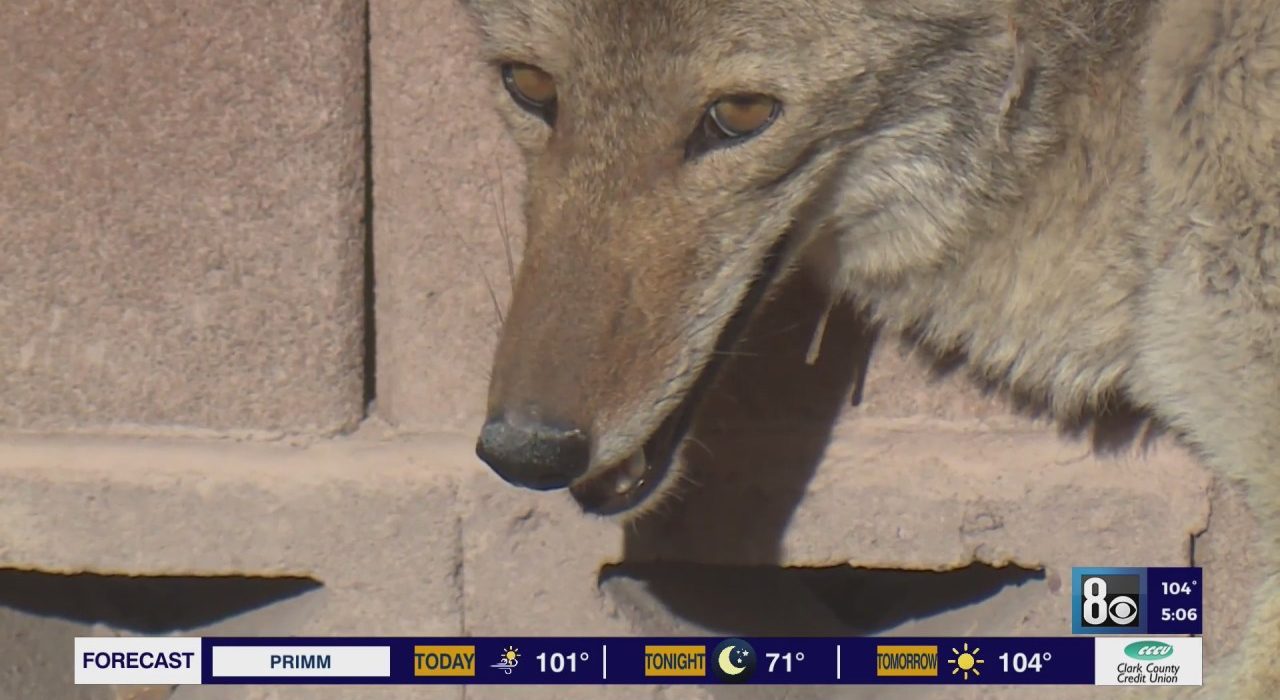Ryan Matthey and Greg Haas
LAS VEGAS (KLAS) — Efforts to deal with a reported coyote-infested house have run into jurisdictional issues between wildlife officials and city animal control.
Neighbors of the home near Sahara Avenue and Hualapai Way said it has been vacant for at least a decade, and it shows.
The front yard has grown into a jungle of shrubs and trees that the Nevada Department of Wildlife (NDOW) said are prime hiding locations for coyotes. Las Vegas City Code Enforcement escorted 8 News Now to the property’s backyard Thursday afternoon, which is also overgrown and has a pool filled with palm fronds.
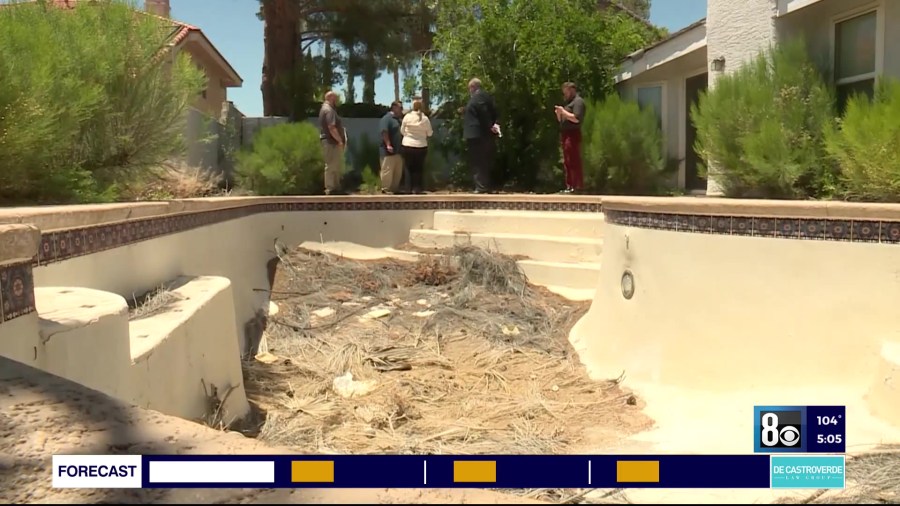
When a beloved stray cat was found dead and in pieces outside the house one morning, people took notice. Security footage from nearby homes captured multiple nights of coyotes running rampant in this Summerlin South neighborhood. Neighbors say the coyotes almost always come from or end up at the home in question.
Elva Currie said her home is no longer her sanctuary.
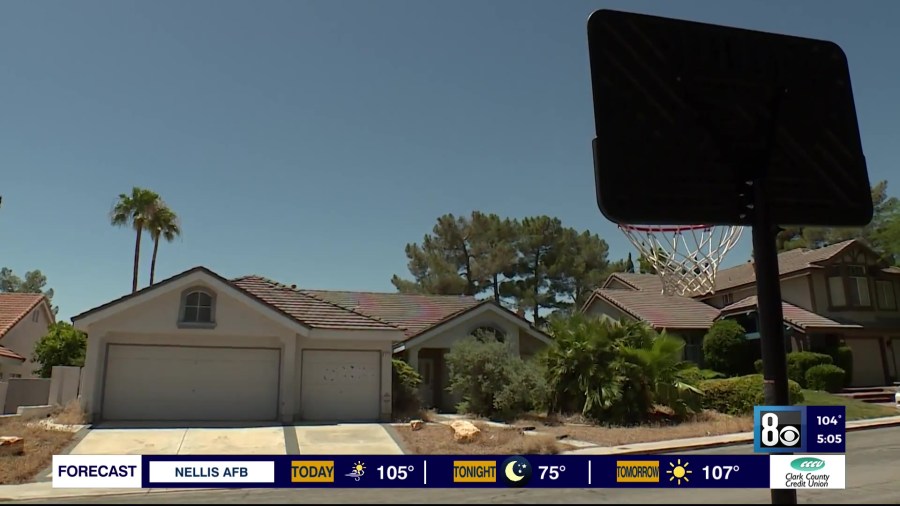
“I have mosquito bites all over me,” Currie said Thursday afternoon. “(The coyotes) definitely are hopping the fence… I can literally be attacked if I was in my backyard.”
A day after 8 News Now first reported on this home, help came knocking. Las Vegas City Councilwoman Victoria Seaman directed personnel from the city’s code enforcement department to the property Thursday afternoon.
Those personnel told 8 News Now that the property had three previous code violation cases starting in 2021 that have since closed. Now, Seaman said the city is taking responsibility to clean it up.
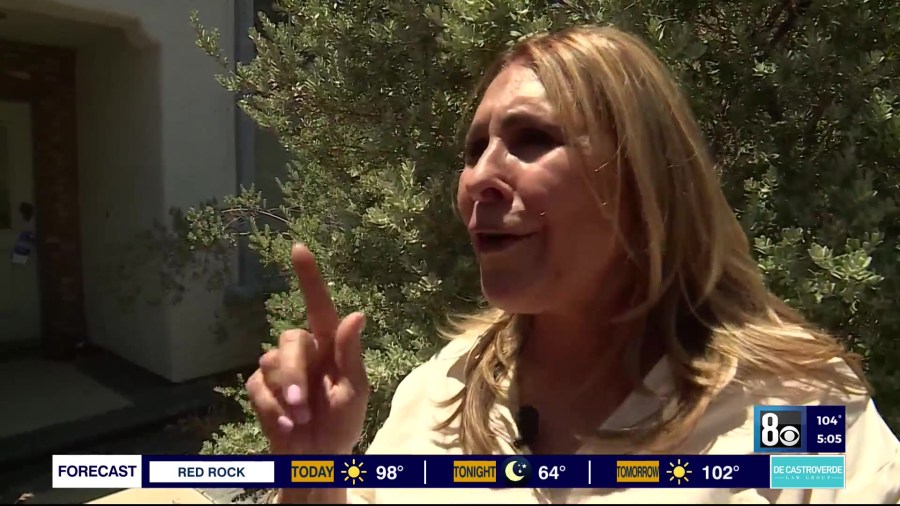
“We’re not going to wait for another animal or person to get attacked by coyotes. That’s ridiculous,” Seaman said, standing on the property’s driveway. “Problems do not see jurisdiction.”
But, this problem does. Doug Nielsen, public information officer for NDOW, says his department would be responsible for any potential action due to protections regarding the species.
“Coyotes are a rabies vector species,” Nielsen said during a virtual interview Thursday morning. “Those species cannot be moved from one place to another because there would be a chance of translocating that disease along with it.”
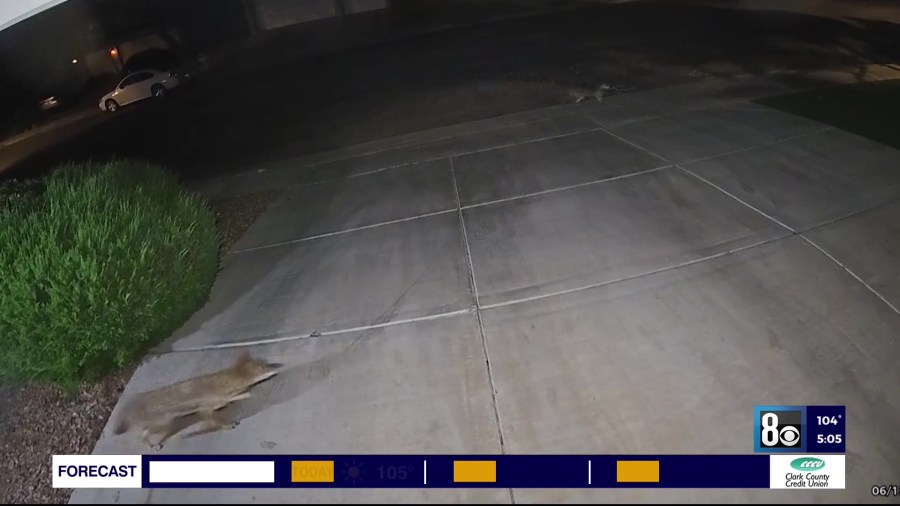
Those protections prohibit the removal until a bona fide public safety threat is presented. Nielsen describes those threats as when a coyote begins acting aggressively, standing its ground and refusing to leave when given the opportunity to avoid humans.
But, the removal would come via euthanasia, per the protection. He said NDOW could decide to do this removal before anyone is hurt pending verified information about these coyotes killing pets.
“Do you see it as either the coyotes leaving on their own accord or you guys having to come in and euthanize them?” 8 News Now asked.
“If the animal leaves, that’s doing what we want it to do, and we’ll be happy to let it do so,” Nielsen responded. “We don’t remove an animal simply because somebody doesn’t like its presence.”
He said removing “attractants” from the property, like overgrown plants, would persuade the coyotes to move on themselves. The homeowner, listed by the Clark County Assessor as a trust out of California, would be responsible for doing so.
Code enforcement personnel told 8 News Now that per county code, it could be four years before the home is put up for auction if the owners do not comply. Councilmember Seaman said she is trying to speed that up.

